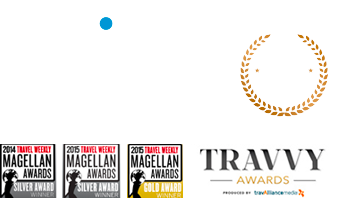The office rarely sleeps. Working as a junior associate at a fast-paced investment firm in Canary Wharf means every hour is a potential fire to put out. Days blur into nights with meetings, negotiations, and spreadsheets that never seem to end. When I finally get home to my modest flat in South London, I’m not looking to socialize or hit the gym. I need silence. Or more accurately, I need a story. Something smart, sharp, with high stakes and better dialogue than anything I heard in the boardroom. For someone who lives in the deep end of capitalism, prestige dramas and corporate thrillers are oddly therapeutic. They help me process the chaos, but with much better lighting.

Naturally, I assumed streaming platforms would be my lifeline. I was juggling three of them—Netflix, Prime Video, and Now TV. Together, they cost more than my monthly phone bill, but I told myself it was worth it. Yet, every time I wanted something specific, something that matched the mental space I was in, it was never there. I’d get ready to unwind with that political newsroom series everyone swore was essential, only to discover it was locked behind a fourth paywall. Or worse, I’d find the show, but half the seasons were missing. And don’t get me started on films split between platforms, where one app had part one and another kept the finale hostage.
Streaming Isn’t What It Promised
The algorithms were another betrayal. Based on one night of watching a smart financial drama, I’d get recommended trashy dating shows and bland workplace sitcoms. It felt insulting. The promise of these platforms was personalization. What they delivered was repetition. A thousand thumbnails, but not one thing I actually wanted to see. After one particularly long day—a botched pitch I’d slaved over for weeks—all I wanted was to rewatch a cult classic about cutthroat salesmen. It was my go-to comfort film. But Netflix didn’t have it. Prime only offered it to rent at an absurd price. Now TV had it, but buried so deep in the UI I almost gave up. That night, I stared at my screen in quiet rage. I was paying for a premium experience and getting a puzzle with missing pieces.
A Quiet Recommendation
The next day, I ranted to a colleague over lukewarm coffee. He’s one of our design guys, sharp and cynical, with a browser full of shortcuts and a deep distrust of anything mainstream. When I finished complaining, he raised an eyebrow, pulled out his phone, and sent me a link. No explanation. Just a nod and, "Trust me."
I didn’t want to trust him. I had memories of dodgy uni sites that drowned my laptop in pop-ups and malware. But I was out of options. That evening, curiosity beat caution. I clicked the link.
What loaded was unlike anything I expected. No ads screaming at me, no fake play buttons, no bizarre browser hijacks. Just a sleek dark interface with a single search bar front and center. Clean, minimal, efficient. It was the first time in years that a site had made me feel calm.
Finally, the Real Library
I typed in the title of that salesmen film. Boom. There it was. Right artwork. Right director. Right year. I hit play, bracing for disaster. But instead, I got a smooth, crystal-clear stream. High-definition. No buffering. No stuttering. No "sign up to continue." It was like discovering a secret wing of the British Library, one that held exactly what you wanted, no card required.
I dove deeper. Everything I couldn’t find elsewhere suddenly materialized. The full run of that newsroom drama? Available. Obscure political thrillers I’d bookmarked years ago? All there. Even the old black-and-white legal films my dad used to swear by. This wasn’t just content—it was curation. A serious, thoughtful, lovingly assembled archive that understood cinema beyond the algorithm.
Then came the collections. Real ones. Built by people who knew genres weren’t boxes but conversations. I scrolled through Workplace Drama Movies, feeling seen for the first time. Every film felt handpicked for someone like me. I wandered into Legal Drama Movies next, then found Satire Movies that roasted corporate absurdity with pitch-perfect wit. Finally, I hit the Psychological Thriller Movies and felt like the site had read my mind. These weren’t just folders. They were doorways.
Why 123movies.cx Works
This became my new normal. The site, 123movies.cx, didn’t just replace the other platforms—it rendered them obsolete. I learned quickly that it doesn’t host anything itself. Instead, it acts like a highly optimized index, tapping into a vast digital network to pull in streams faster and cleaner than anything I’d paid for. And yes, there are ads, but they’re barely noticeable. No interruptions. No shady tactics. Just access.
I stopped renewing my old subscriptions. The value wasn’t there. With 123movies.cx, I could find exactly what I wanted in seconds. The quality? Exceptional. The range? Massive. From classic films to indie obscurities, from tense modern dramas to mid-century courtroom showdowns, everything I could possibly want was there.
Now, when I shut my laptop after another 14-hour grind, I know I have something to look forward to. Not just noise, not just content—but the right film at the right time. It’s not just entertainment. It’s recovery. It’s the one space in my day where the pressure drops.
And I owe it to a quiet tip, a single link, and a site that actually delivers.
Visit https://123movies.cx for the one streaming experience that finally got it right.

